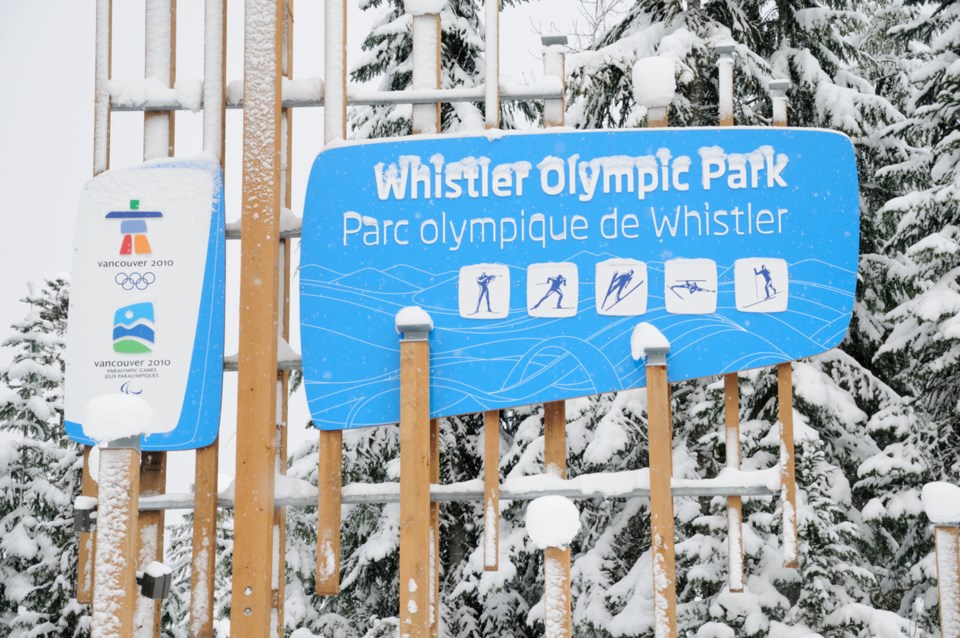Sport is identity-intrinsic, government is identity-inciting; it would help if, every so often, the latter would help the former make us feel better.
Remember, say, what we felt 10 years ago? Skepticism and reticence were washing away with the emerging reality that British Columbia would stage a singular accomplishment: the 2010 Winter Olympics.
Remember, exactly, what was needed to do? Logistics beyond any peacetime project in our midst — housing, roads, facilities, a subway, all against a defined deadline amid a generous but not lavish framework. Mindful Canadians were never going to outspend the egos of Vladimir Putin or Xi Jinping.
Here we are, a decade later, material legacy across the country in our sports and across the region. Corporate Canada has learned that supporting sport is mutually beneficial, while the Own the Podium program elevated amateur sport as a model for the world and ensconced Canada as a top-three Winter Games nation.
More significantly, because a large portion of sport’s economics is furnished in the form of goodwill, the Games furnished homegrown confidence B.C. could in short order secure, assemble and host inarguably the most successful Winter Games.
But if B.C. found its voice in global sport in 2010, a decade later it is lost.
Two bewildering issues have ensued: our province hastily ran away from hosting the 2026 FIFA World Cup, and our region has sat on its hands rather than pursue a lower-cost sequel to the Games. The World Cup decision is an absolute blunder. This is Canada Soccer’s flagship city with the country’s most modern stadium for the sport. Only four years ago, Â鶹´«Ã½Ó³»was the marquee presenter for the women’s World Cup. True, it needs (as in 2016 it needed) natural grass, but that is not an impossibility for the event.
John Horgan, weeks into his job as premier in 2017, hastily rejected the opportunity. He and others correctly fret about the vague cost risk, but he blinked and blew it.
Now we will watch the largest non-Olympic sporting event — one that should be ours — in Toronto, Montreal, Edmonton and possibly Seattle, never to be offered here again for decades.
It is worth asking: what did Horgan know that other places didn’t?
Our province has supported the sport like none other. Our women’s soccer history has been exquisite — Games medallists, top eight worldwide for a decade, with a real B.C. bent on the team. Our men’s side has been lamentable, but by 2026 that might have changed. We have ex-Whitecap Alphonso Davies, still only 19, emerging at Bayern Munich as the world’s best player at his position, along with a handful of strong prospects with six years to go. Canada is in the 2026 draw as a host nation. No one suggests we will be contenders, but we deserved better than to watch from afar.
If we consider ourselves a global city — and our diversity and progressiveness suggest we can be — we have to run global events. Which is why the enduring, not-past-due-date facilities of 2010 in Â鶹´«Ã½Ó³»and Whistler deserve another occasion to present the experience.
We know we could host the skating, sliding and skiing sports pretty much tomorrow. We are not far away from instant Olympics.
We could go it alone or pair with Calgary, with a world-class speed skating oval from 1988 and a new arena on the horizon. We might even briefly shelve our Albertan rivalry in the interests of Canada.
That approach suggests a recycled, restrained Games, likely where the International Olympic Committee will have to head, anyway. Even to explore the feasibility, though, leaders have to get their heads out of their morass. Instead, we have given way again to that skepticism and reticence that keeps us small.
The big chances are, as Paul Simon might put it, slip sliding away. By the time we have another opportunity, Davies will have grandchildren, BC Place will be decrepit and climate change will have transformed Whistler and thumped the Lower Mainland.
Yes, we can’t. Yes, we won’t. Yes, we didn’t.
Kirk LaPointe is the publisher and editor-in-chief of Business in Vancouver and the vice-president, editorial, of Glacier Media.



